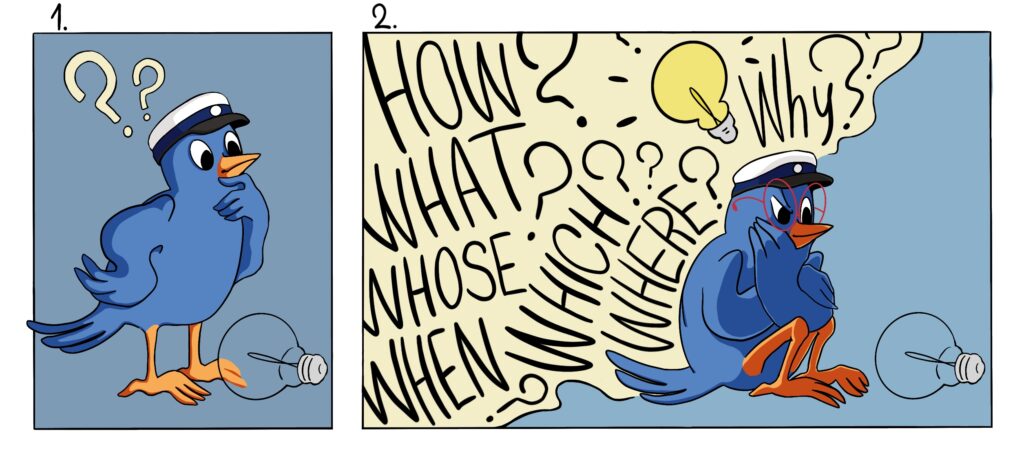- Career Hub
- Future Skills
- Academic planning
- Planning further studies
- Planning your studies
- How to manage your studies?
- How to plan for your studies?
- How much freedom do you have to modify your studies?
- When to make learning choices within the curriculum?
- How little or how much can you study?
- How can you concentrate on and manage the time of studies?
- How to change specialisations?
- How to study well?
- Internship
- International experience
- Work-life development
- Act and grow
Critical thinking

Critical thinking is the process of analysing ideas, claims and situations to understand their credibility, justification and validity. A critical thinker can ask pertinent questions, distinguish fact from opinion and truth from falsehood, and reach reasoned and rational conclusions. They are able to assess the weight of reasoning and evidence and understand their meaning and relevance. Critical thinking is based on information literacy, searching, evaluating and managing information from different sources.
Thinking analytically makes it possible to look at complex ideas in a systematic way, to notice patterns and interconnections and to combine them. Meaningful reflection is very important in this context, allowing for a better understanding of the situation and appropriate decisions. It also means the ability to reflect and to be open to (self-)criticism, in order to understand one’s own experiences, to learn new things, to cope with challenges and to change one’s behaviour when necessary.
| A moment of reflection: Think about how much information you consume every day and how much of it is reliable and necessary. If something looks suspicious, do you look for more information? Do you consider yourself a source-critical person? Are you open-minded? How often do you ask “Why?”, “How?” or “What if…?”. Can you distinguish between your judgement and emotion and the facts? What tools do you use for analysis? |
Inspiration to take action
- When navigating social media, check that the information you are given is up-to-date and that the source is reliable.
- Listen carefully to your conversation partners, try to get a clear picture of their views and reasoning, and be prepared to change your mind if necessary.
- Evaluate which information is most relevant to your decision at the moment.
- See how a (popular) science researcher of your choice puts a piece of information into context, and how it helps solve their research problem. Try to think of the problem you are facing in the same way.
- Search for more information on the subject independently so as not to be too influenced by the opinions of others.
- Expand your horizons. For example, take an optional course at the university or elsewhere.
- Read books and articles on a wide range of topics and by different authors.
- Do not believe everything you hear. Explore multiple perspectives.
- Ask open-ended questions: “Who?”, “What?”, “Why?”.
- Take into account that you are biased too. Try to assess your beliefs and experiences objectively and understand how they might affect your opinion.
- You can develop your critical thinking skills both during the specialised studies and when doing research.
- FLFI.00.102 Critical Thinking and Argumentation, 3 ECTS
